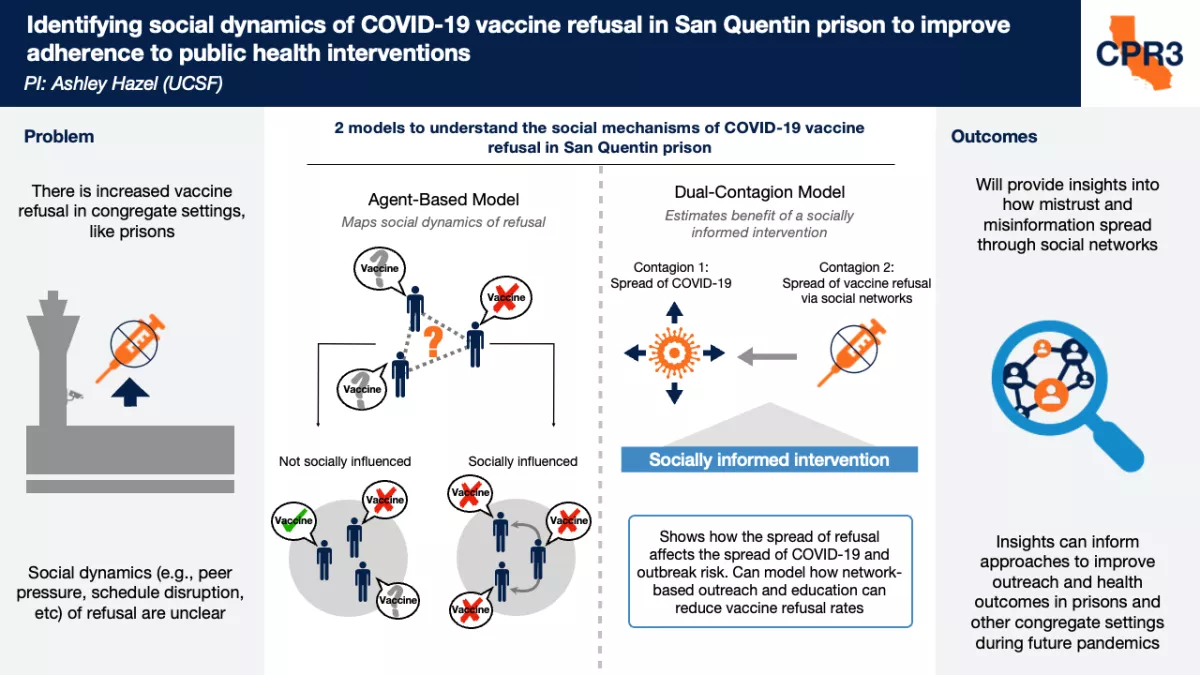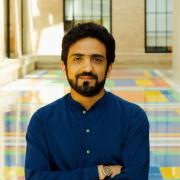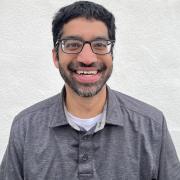Refusal to accept outbreak prevention measures like vaccination is prevalent in highly vulnerable populations, including incarcerated people. To reduce infections and limit morbidities from pathogenic outbreaks, we must understand the social dynamics underlying refusal. Herein, we propose a set of models based on the San Quentin prison context to 1) characterize the social structural dynamics of SARS-CoV-2 vaccine refusal (agent-based model); and 2) estimate the benefit of a socially informed intervention on outbreak mitigation (dual-contagion model). We will build a simulation of the San Quentin prison population using California Department of Corrections de-identified resident data including vaccination, demographics, and location and daily movement patterns, which will be the basis of both proposed models. This project will offer insights into the social pathways by which mistrust and misinformation spread to improve outreach and health outcomes during future pandemics for prison populations, as well as other congregate-living settings.
Visual Abstract




